Part one of my live book review of “the Doctrine of the Lesser Magistrates” by Matthew Trewhella
As I’ve stated in previous book reviews, I may not judge a book by its cover, but I do judge a book upon its table of contents. For me, the table of contents is where I give the author first space to make a compelling case for me to read his book. Where I do give weight to endorsements of others I want the author to argue his case by use of words. In it one can usually see what words and how he’ll use those words to argue his case. This is important and it is a constant lesson for me in what words I use and how I use those words to argue my case.
For many, “the Doctrine of the Lesser Magistrates” will require the reader to be hungry to learn. It is going to require the reader to want to know with better understanding and an expanding vocabulary. At best, it will require the reader to want to have better application of textbook vocabulary and an increasing knowledge of history.
The responsibility is on the author, Trewhella, for most readers will be to define terminology while placing the historic need and the modern day practice of what is otherwise a completely forgotten practice. I’m looking forward, with anticipation, to hear Trewhella help this biblical thinker think better.
The table of contents at a glance (admittedly, not the most riveting of reading)
- Chapter 1: The Doctrine Defined
- Chapter 2: Rooted in Interposition
- Chapter 3: All Authority is Delegated
- Chapter 4: The duty of Lesser Magistrates
- Chapter 5: The Objective Standard for Law
- Chapter 6: The Rule of Law and the Lesser Magistrates
- Chapter 7: Magdeburg and the Lesser Magistrates
- Chapter 8: John Knox, Holy Scripture, and the Lesser Magistrates
- Chapter 9: When Lesser Magistrates Go Rogue
- Chapter 10: The Response of the Tyrannical Higher Magistrates
- Chapter 11: The Role of the People
- Chapter 12: The Lesser Magistrate Doctrine in Our Day
- Appendix A: An Examination of Romans 13
- Appendix B: The Laws of a Nation Should Mirror the Law and Justice of God
- Appendix C: The Police Officer as Lesser Magistrate
- Appendix D: The Interposition of the Military
- Appendix E: A Biblical Response…
- Summary
Thoughts on the Introduction:
In the introduction, Trewhella, sets the scene, reminding the reader that all of civilization is aware of, that men, throughout time, have abused authority. Obviously, if men can abuse authority, governments can as well abuse authority. It is therefore the duty that the “citizenry must remain vigilant, and understand both the purpose and limitations of the State.”
He reminds the reader that when the citizens forget or “does not know the purpose and limitation of the State” that this leaves the government at risk of either knowingly (purposefully) or accidentally (passively) thinking wrongly, highly, about its role. The government will begin to think of herself as the savior of the people it governs rather than serving as a monument for why we are a people, nation.
In the midst of the short introduction, Trewhella speaks about (really to) the man in the pulpit.
“In the past, the pulpits in our nation instructed the people in purpose, functions, and limitation of the State. Many pastors preached every year what became known as “election” and “artillery” sermons. These sermons were routinely preached during the first 100 years of our nation. Clergymen understood and taught their congregations that God’s Word addressed all matters of life, including the matters of civil government.”
the Doctrine of the Lesser Magistrates, Matthew Trewhella; introduction p. xii.
As a matter of fact, I recently read what John Adams said of colonial American pastor, Jonathan Mayhew, “He was the morning gun of the Revolution.”
Trewhella, went on to say…
“Today however, most pulpits are silent about God’s Word when it comes to civil government. in fact, most just teach unlimited obedience to the State, as though there are no limitation to the State’s rule. By default, they teach that whatever the civil government rules legislatively is therefore the will of God.
The church pulpits are the historical means whereby the people are instructed, from a theological foundation, in the purpose, functions, and limitation of the State. When a citizenry’s view of the State is theologically-driven, the State can no longer get away with doing whatever just tickles its fancy. This is because an informed citizenry, one which recognized transcendent law, is vigilant, and will not tolerate abuse or tyranny.”
the Doctrine of the Lesser Magistrates, Matthew Trewhella; introduction p. xii – xiii.
He concludes the introduction with a compelling argument of how our national founding fathers established safeguards to protect the government from thinking of itself as our savior (my words).
Trewhella, reminds us that these safeguards are called “boxes” The ballot box, the jury box, and the cartridge box. (To most 2nd Amendment lovers, you get the reference to the “cartridge box”.)
The ballot box is how we deal with and replace unjust rulers. Like many, it is past time to rally citizens to run for public office and then to be sure we vote in the next election cycle. As one engaged from local to national, we need to find outstanding citizens, fit and ready, to enter the race. It is time to replace the unjust men-lovers with humble god-fearers.
The jury box is not a reference to the supreme court. The citizens don’t just have a “right to judge a case, but to judge the law itself.”
The cartridge box is self explanatory to most readers. But remember it is not a right to avenge a wrong someone has done to you. An armed citizenry is as much a reminder to the government that the people will defend themselves against the tyrannical government if need be.
Here is where Trewhella first introduces a working definition of “lesser magistrates”. It was a tool given to the citizens by our government founders as a means to “rein in a higher authority that has spurned its limitations.” This doctrine is rooted in Scripture, I am confident he’ll unfold this in the coming chapters.
“Americans are now nearly a completely conquered people. We do not have to sit by handwringing and passively submitting to our own destruction, however. The doctrine of the lesser magistrates provides a legitimate and proper means to restore order and resist tyranny. History has proven that peasant revolts are easily put down by the State. The lesser magistrate doctrine is effective in quelling abuses by the higher authority, and does so often without the shedding of blood.”
the Doctrine of the Lesser Magistrates, Matthew Trewhella; introduction p. xiv.
In the next post I will include my thoughts on the Chapter 1.
Note for the reader: First, don’t get too frustrated with my grammar or keyboard mishaps (down right bad spelling). Second, I’m a slow reader and answer my own phones so my day has many interruptions that I’m not in control of, so this could be a slow process.
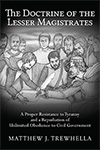

 Last night (4/19/16) I met up with John Martinez, Steve McMullin and Bradley Kinch again to process through and think about the whole of the worship gathering of the Lord’s people and what is required of those who lead out in the gathering. We gathered at one of my favorite places in town, Chick-fil-A, to enjoy the fellowship of brothers and discuss the important duty we have to God in leading His people to worship Him.
Last night (4/19/16) I met up with John Martinez, Steve McMullin and Bradley Kinch again to process through and think about the whole of the worship gathering of the Lord’s people and what is required of those who lead out in the gathering. We gathered at one of my favorite places in town, Chick-fil-A, to enjoy the fellowship of brothers and discuss the important duty we have to God in leading His people to worship Him.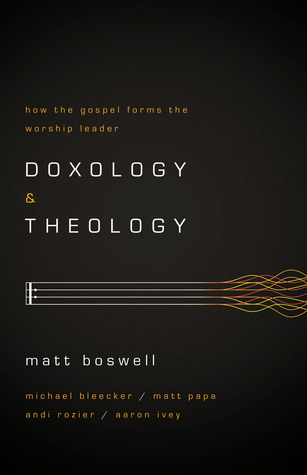
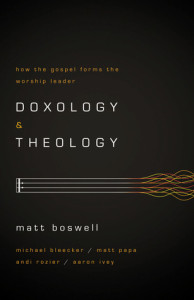 From time to time I like to do a book review while in progress.
From time to time I like to do a book review while in progress.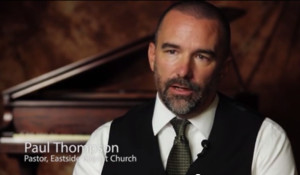
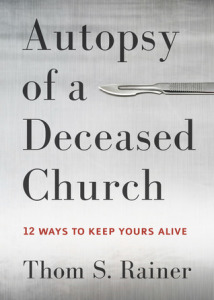 Over the weekend I received a copy of Thom Rainer’s book, “
Over the weekend I received a copy of Thom Rainer’s book, “